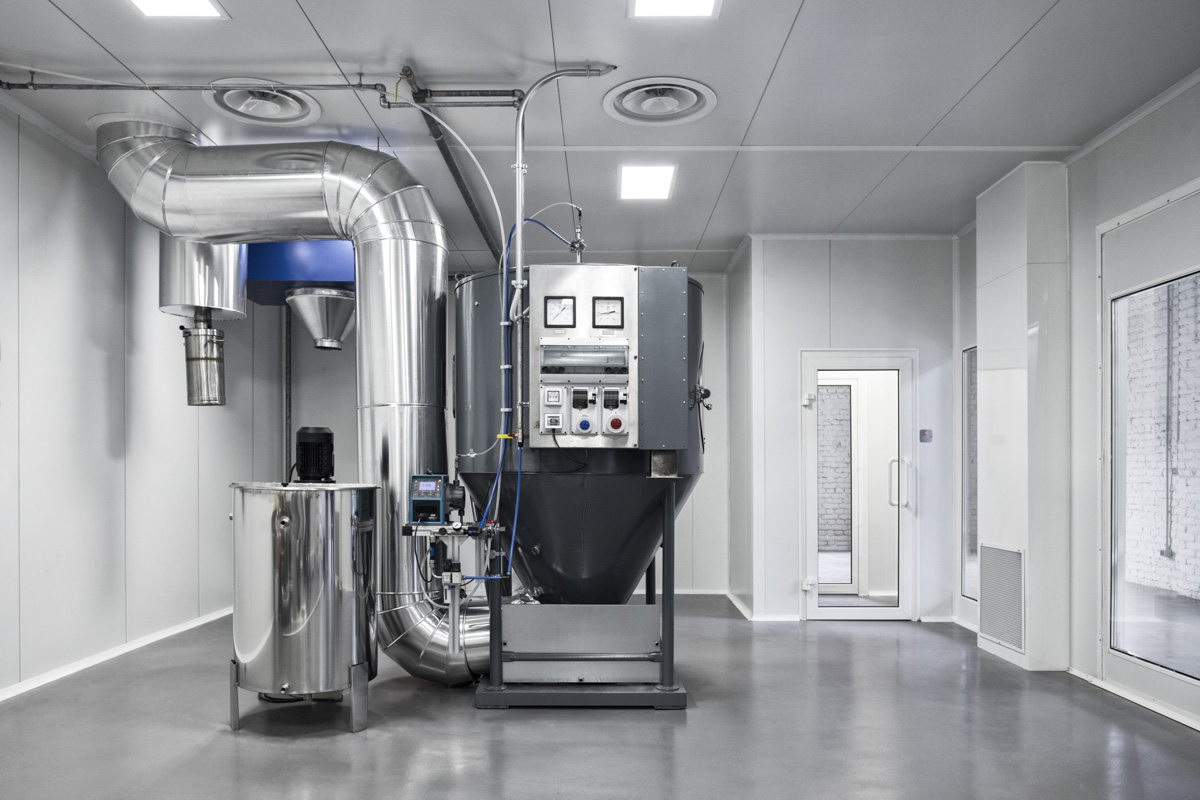


Industrial Filtration
Funded by the Regional Program under the European Regional Development Fund 2021/2027 of the Lombardy Region
PR ERDF 2021-2027
ACTION 1.1.1. “Support for investments in research, development and innovation”
TOTAL GRANT: € 355.810,53
Building on the experience gained with masks and filters for the automotive sector, the company has launched an 18-month project to expand into the field of industrial filtration, with particular focus on automotive filters and air systems for domestic and industrial environments. The project aims to move from TRL 5 to TRL 8, identifying the most suitable grade of graphene and application method (among printing, impregnation, spray coating, and reverse roll), and developing prototypes ready for production.

Investments for growth and employment
Directa Plus S.p.A. won “INNODRIVER-S3 EDITION 2019 – funded by the Lombardy Region as part of the 2014-2020 Regional Operational Program” Objective “Investments in favor of Growth and Employment”.
The proposal includes R&D activities developed in collaboration with the CRTT INSTM-National Interuniversity Consortium for Materials Science and Technology, and it is aimed at product innovation through the application of highly advanced technologies for the use of graphene.
The objective of the project is in fact the creation of high value products for the textile and furniture sectors which, thanks to the use of graphene, are able to ensure optimal management of the heat produced naturally by the human body thanks to the thermal circuit, called G+® Planar Thermal Circuit® (G+® PTC®).
The G+® technology developed by Directa Plus represents the absolute innovation on the transport of heat inside the garment using graphene, the best-known thermal conductor, and allows to obtain a temperature homogenization effect between the hottest and most cold, thus generating thermal comfort for the user.

The GRAFYFILTER project: a product innovation for the expansion of the filtration and the protection offer
The general objective of the GRAFYLTER project, which will last 12 months, is the competitive repositioning of the Directa Plus company thanks to product and process innovation and the consequent expansion of the offer and entry into new markets.
The project takes as its starting point the activity implemented in 2020 in response to the Sars-CoV-2 pandemic, for which Directa Plus has developed a mask equipped with a graphene filter which it brought to market in June 2020. The filter with graphene G+®, in addition to offering excellent breathability and heat dispersion, it is antibacterial and antiviral, tested in static and dynamic conditions. Considering this important development, Directa Plus has decided to capitalize on its knowledge in the filtration field by applying it to the industrial sector. This choice is motivated by the fact that the demand for filtering devices capable of inhibiting microbial proliferation is growing sharply, and graphene G+® represents a perfect solution.
The activities will therefore include the identification of the correct grade of graphene G+® for this type of applications and substrates, the most suitable application method, and, after the laboratory characterization of the substrates treated with graphene, the creation of the prototypes that will be validated during the project. During testing and validation, the antimicrobial activity against other strains of viruses and bacteria will be evaluated to increase the spectrum of protection for the user also in the future.
An aspect that will be contemplated in the project is to develop highly sustainable filtering solutions, selecting biodegradable textile substrates such as viscose-bamboo non-woven fabrics and applying graphene using natural binders instead of traditional synthetic binders; the synergistic use of intrinsically antimicrobial natural substances such as curcumin will also be tested.
The project is carried out with the help of resources from the European Union, the Italian State, and the Lombardy Region, in application of Regulation (EU) no. 1303/2013 – Annex XXII and of the Implementing Regulation (EU) no. 821/2014 – articles 4 and 5
